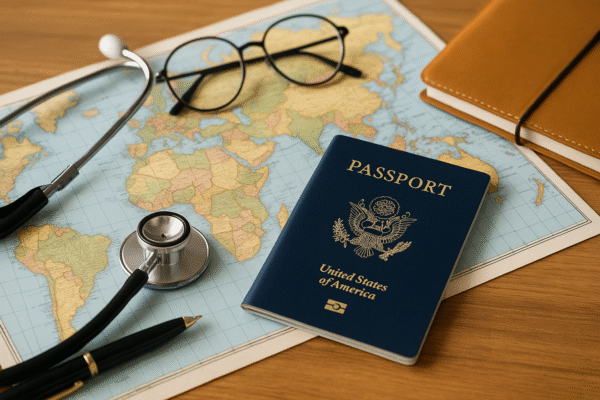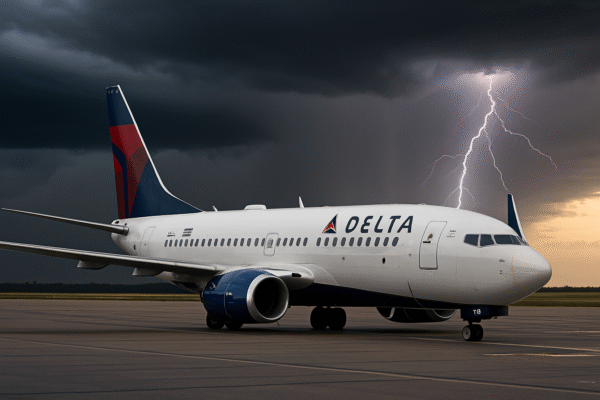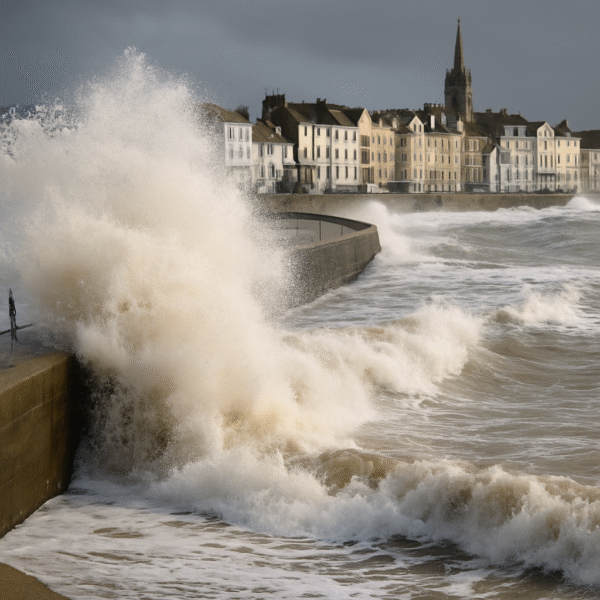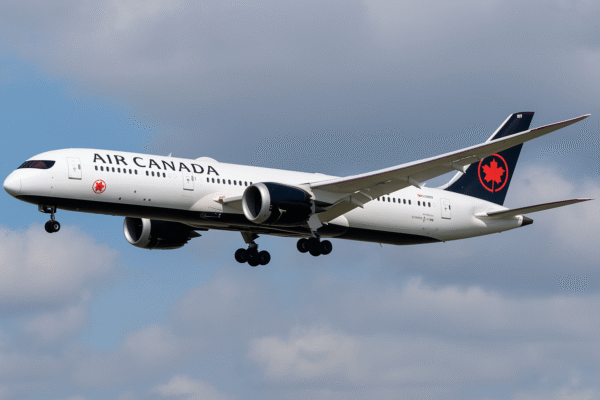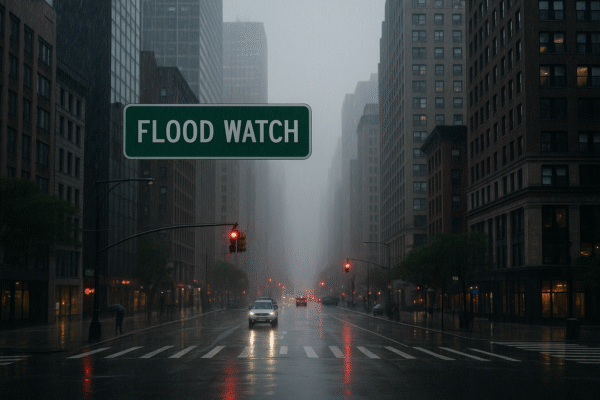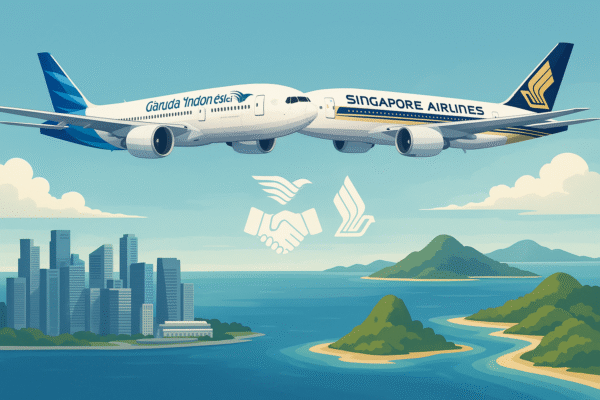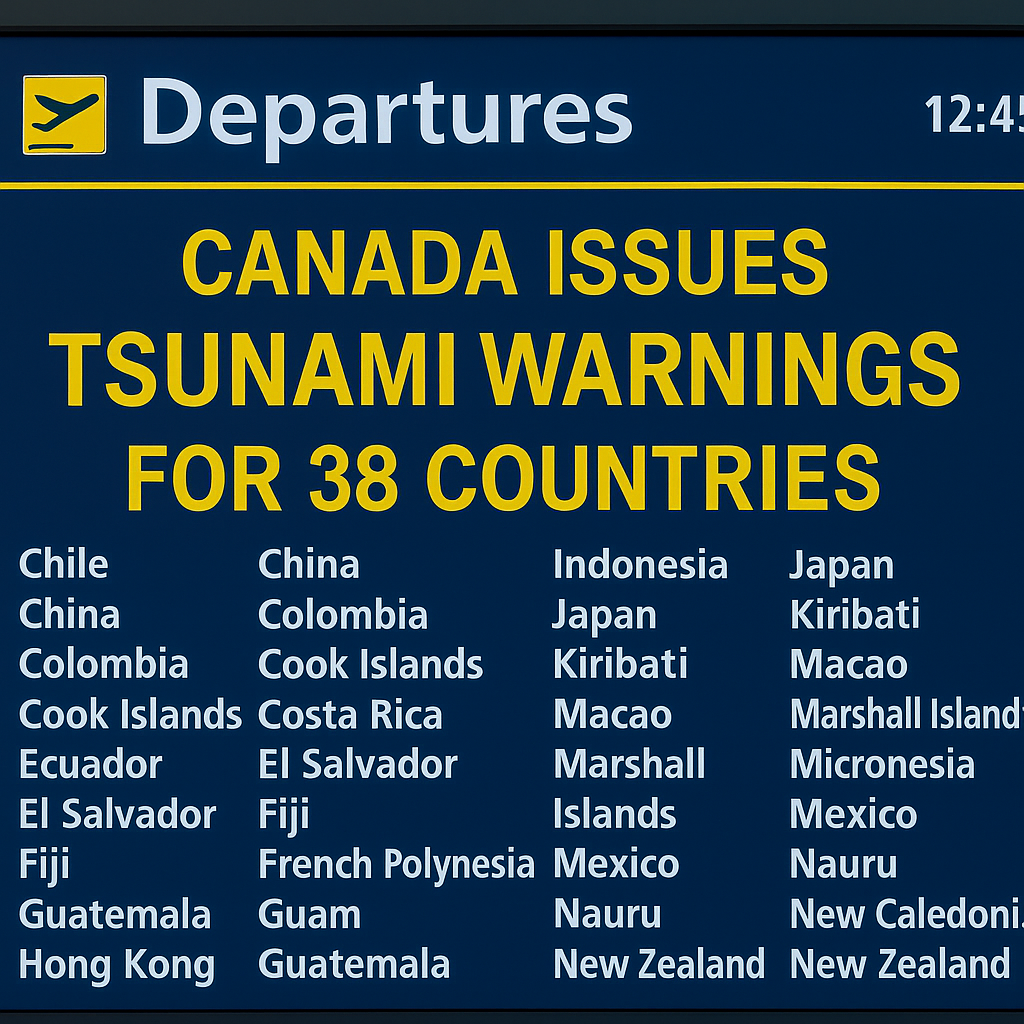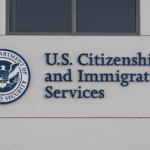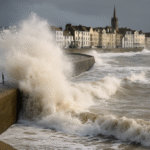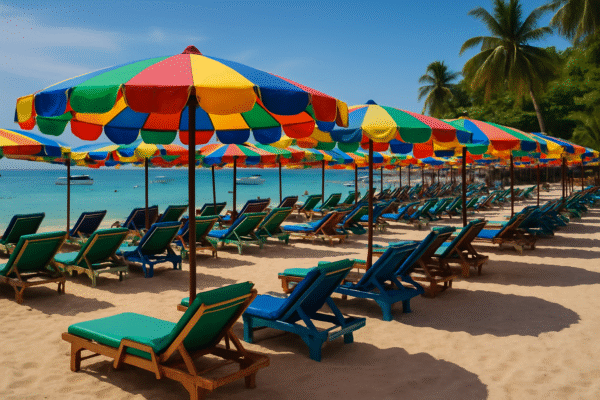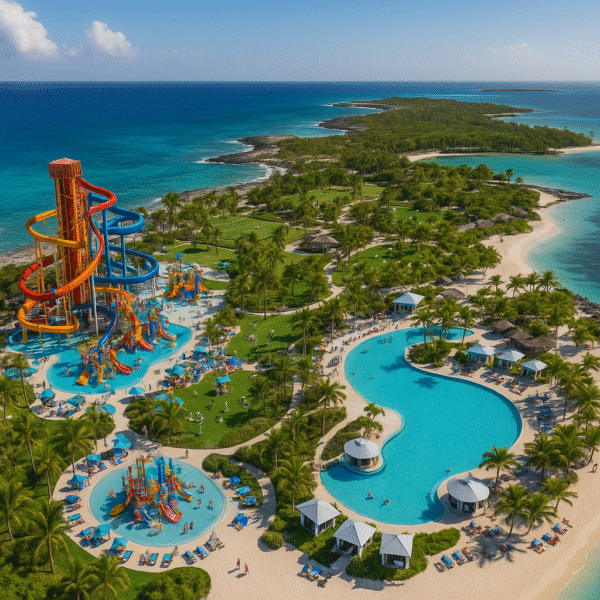In response to an 8.8-magnitude earthquake that struck off Russia’s Kamchatka Peninsula, the Government of Canada has issued urgent tsunami-related travel advisories covering 38 countries and territories across the Pacific Rim. These warnings affect prominent travel destinations including the United States, Japan, El Salvador, Indonesia, Mexico, Fiji, and Hong Kong. The seismic event, one of the strongest recorded in recent years, has caused heightened concern across coastal communities in both hemispheres, triggering widespread tsunami alerts and precautionary evacuations.
Canadian travelers are being urged to monitor local alerts, avoid coastal zones, and stay informed through official government channels. The earthquake, which occurred late Tuesday, sent tsunami waves surging across the Pacific Ocean, prompting advisories as far-reaching as British Columbia and New Zealand.
Affected Destinations and Canada’s Warnings
Canada’s updated advisory includes a comprehensive list of countries and territories where tsunami conditions may pose a risk to residents and travelers. Among them are:
- North and Central America: United States (Hawaii, California, Oregon, Washington, Alaska), Mexico, Panama, El Salvador, Costa Rica, Guatemala, Colombia
- South America: Chile, Ecuador, Peru
- Asia-Pacific: Japan, China, Taiwan, Hong Kong, Macao, Philippines, Indonesia, Papua New Guinea, Samoa
- Oceania and Islands: Fiji, Vanuatu, New Zealand, Cook Islands, French Polynesia, Solomon Islands, Tonga, Tuvalu, Tokelau, Marshall Islands, Northern Marianas, Palau, Micronesia, Kiribati, Nauru, Niue
In British Columbia, a tsunami advisory has been issued for Haida Gwaii, the north and central coast, and western Vancouver Island. Emergency Info BC has warned residents and visitors to avoid beaches and low-lying shoreline areas due to potential strong and hazardous wave activity. Officials have emphasized that tsunami waves may not arrive uniformly, and the risk may persist for several hours.
Safety Recommendations for Tourists
Canadian officials and Global Affairs Canada are stressing the importance of following local government directives and preparing for rapid evacuation if needed. Travelers are urged to:
- Avoid beaches, harbors, and marinas
- Familiarize themselves with local tsunami evacuation routes
- Monitor radio, television, and verified social media for updates
- Follow alerts from agencies like the Pacific Tsunami Warning Center (PTWC) and local emergency management offices
Additionally, tourists currently in vulnerable areas are advised to review their emergency preparedness plans and carry essential documents and supplies.
Global Reactions and Precautions
In Japan, where memories of the 2011 Tōhoku tsunami remain raw, officials have opened emergency shelters across several coastal prefectures and issued high-alert warnings for aftershocks and further sea-level disturbances. Public transit systems in at-risk zones have been temporarily suspended, and local authorities have ramped up public awareness campaigns.
In the United States, evacuation orders have been issued in parts of California and Hawaii after tsunami surges exceeded one meter in some locations. Emergency management teams are on high alert, coordinating with coastal municipalities to minimize risk for both residents and tourists.
The situation remains especially dire in eastern Russia, where the quake originated. Some coastal areas, including remote sections of Kamchatka, have reported tsunami waves as high as 15 meters. Relief operations are underway, with local governments assisting in evacuations and damage assessment. The Russian government has also issued maritime warnings to prevent ships from navigating affected waters.
El Salvador and Central American Coastal Communities on Alert
In El Salvador, where coastal tourism is a key part of the national economy, the Ministry of Environment and Natural Resources (MARN) has issued tsunami warnings and suspended all beach activities along the Pacific coast. Authorities are working closely with local municipalities and tourism businesses to inform visitors and redirect travelers away from high-risk areas. Tourist accommodations in beach towns such as La Libertad and El Cuco have been advised to implement emergency protocols and provide safe shelter options.
The United Nations Office for Disaster Risk Reduction (UNDRR) has noted that many of the affected nations are implementing regional coordination measures, supported by the Pacific Tsunami Warning and Mitigation System (PTWS) under UNESCO.
Impacts on Travel and Tourism
With multiple countries issuing tsunami-related advisories, travel disruptions are already being felt. Airlines operating trans-Pacific routes—including Air Canada, Japan Airlines, American Airlines, and Fiji Airways—have issued waivers or rebooking options for passengers affected by the advisories.
Cruise lines such as Carnival, Royal Caribbean, and Princess Cruises are actively rerouting or delaying voyages in the Pacific. Ports in Hawaii, Japan, and Chile are temporarily closed or operating under restricted conditions.
Tour operators with packages to beach destinations in Fiji, Mexico, the Philippines, and Japan have paused bookings or offered itinerary changes. The Canadian government’s updated advisories are expected to impact outbound tourism significantly in the coming week.
Canadian Government Resources for Travelers
The Canadian government urges all travelers in or heading to Pacific destinations to consult the Travel Advice and Advisories section, where updates are issued regularly. Travelers should also register with the Registration of Canadians Abroad service to receive real-time emergency notifications and allow consular officials to contact them in crisis situations.
Conclusion
As the Pacific region continues to experience the ripple effects of the powerful Kamchatka earthquake, Canadian travelers are reminded to prioritize safety and stay informed. With tsunami warnings in effect across dozens of countries and dynamic ocean conditions posing persistent risks, travelers are strongly advised to heed all official advisories and avoid affected coastal areas. The global tourism community now watches closely as emergency responses unfold, hoping for a swift return to safety across the Pacific Rim.
For more travel news like this, keep reading Global Travel Wire



